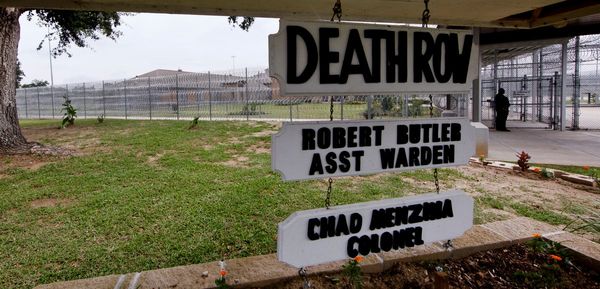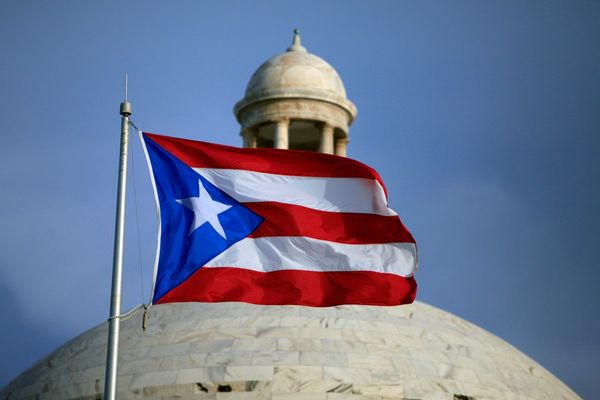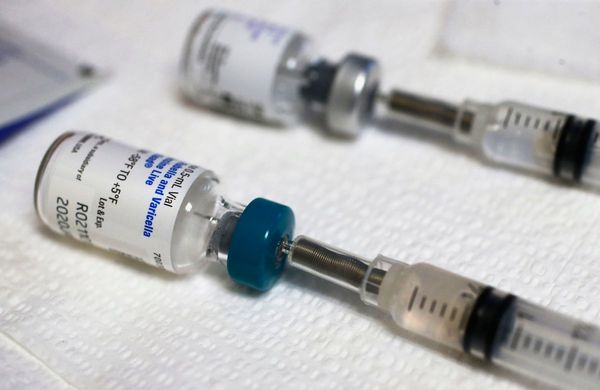On the island of Rote in West Timor, Meji Nafi prays before an empty grave in her front yard.
Her husband, Captain Johanis Balu, was one of nine Indonesian fishermen who drowned at sea in March, in remote waters off Australia's north-west coast.
Their bodies were never found, despite an intensive rescue operation involving a helicopter crew from Western Australia, the Australian navy and a passing cargo ship.
"This hollow grave is all we have for him," she said from her home at Hundihuk, a rural village in Rote's south.
"The custom here is when someone dies at sea we have a grave to remember him by, so children and grandchildren know their father or grandfather has drowned."
The mens' boat, Kuda Laut or 'seahorse', capsized in stormy seas west of Ashmore Reef, as Tropical Cyclone Charlotte bore down on them about 630 kilometres north of Broome.
Only a day earlier they had set sail from the port of Papela, and when the weather suddenly closed in they tried to turn back.
But it was too late. A giant wave suddenly upturned the boat, sending the men into the ocean.
Survivors scrambled to make a raft from the boat's debris
The nine crew who drowned could all swim.
Those who couldn't swim were the ones who survived after they managed to build a makeshift raft from the boat's debris, keeping them afloat for two or three days until they were finally rescued.
They were then taken to hospitals in Darwin and WA, suffering from severe dehydration, hypothermia and exhaustion.
The youngest man, Reki Balu, 29, was critically ill for weeks in a Perth hospital, before he was flown home to Rote.
So traumatic was his ordeal he still can't talk about it, and none of the three survivors will ever set foot in a fishing boat again.
"I'm too scared to go back to the sea," Habel Kanuk, who was on the boat in March, said.
"The risks are too high. Now I just work around the village, doing construction work."
It was poverty that forced the men to go to sea in the first place, even though most of them — except the captain — had no experience as sailors.
"It was during the pandemic and we needed the money," another of the surviving fisherman, Melki GIri, said.
"On a good day we could take home over a million rupiah ($AUD100).
"If we just relied on farming we would only earn an income once a year."
The desperate search for food after two years of lockdown
As Indonesia emerges from the pandemic and two difficult years of near-lockdown, thousands of men and teenage boys — often with no experience on a boat — are setting sail to try fishing.
At Hundihuk alone, just one of many small villages on Rote, more than 100 fishermen have left in recent months, helping to fuel a surge in illegal fishing boats in Australian waters.
In the 12 months to the end of June, Australian authorities say there were 337 legislative forfeitures at sea, and 44 foreign fishing vessels were seized, most, if not all, of them Indonesian.
That represents almost a four-fold increase on the year before, when 12 fishing boats were seized and there were 85 forfeitures between July 1, 2020, to June 30, 2021.
Peter Venslovas from the Australian Fisheries Management Authority says the number of illegal fishing boats in Australian waters is at its highest level in more than a decade.
"We haven't experienced these numbers for 10-15 years," he said.
"The numbers are approaching the numbers that we experienced in the mid 2000s, which peaked out in 2005–2006."
But lucrative and rising prices for fish and other marine species are also a key factor driving illegal fishing.
The search for bountiful sea treasures
Most fishermen, including the 12 crew on the Kuda Laut, are fishing for trepang or sea cucumber, which can fetch more than $AUD20 each, or $AUD40 a kilogram.
A big catch can bring in thousands of dollars.
Sea cucumber is a delicacy in Chinese restaurants, where a typical dish can cost more than $AUD100 in restaurants in Jakarta or Surabaya.
In the past year almost 29,000 kilograms of trepang and 583kg of shark were seized off vessels fishing illegally in Australian waters, along with fish fin, mackerel and tuna.
Mr Venslovas says while other industries have declined during the pandemic, fishing has become more lucrative.
"Fishers who have previously held employment in the tourism industry and so forth in Indonesia, like Bali and other places, with the shutdowns and lock-outs and so forth, they've had to look at other ways to make a living," he said.
Authorities in Rote fear the drop in incomes along with higher prices for marine species will lure even more Indonesians who lack sea-faring skills onto the high seas, and lead to more drownings.
"Our village has been hit hard by the pandemic," says Yunus Modok, the head of Hundihuk village.
"The number of poor people has increased. The huge problem is the economic conditions here, which means many people still go out despite the bad weather," he said.
Grant Barker, a commercial fisherman who also works in waters across northern Australia, has often been called on to pull shipwrecked sailors from stricken boats.
He says he was deeply saddened to hear of the tragedy in March.
"They were very fortunate to find the three alive. You know, I think that's quite miraculous," he said.
But it wasn't the first time he'd seen mishaps off the West Australian coast.
"One of my skippers found three Indonesian guys floating at sea. They'd been adrift for five days … but luckily none drowned," he said.
"They tied a couple of eskies together and they've managed to pick up some water bottles, enough to keep them alive.
"It happens, these boats do get into trouble from time to time … it just doesn't seem to get fixed properly. And it's really gotten worse with the advent of COVID."
Calls for Australia to ramp up patrols to save fisherman
Australia and Indonesia earlier this year set up joint working groups to enable better co-operation on trans-boundary fishing. The first meetings were held in Jakarta.
But in June officials from both countries visited Rote and Kupang in West Timor to develop a public information campaign, to ensure Indonesians can navigate properly and avoid fishing illegally in Australian waters.
"What is of concern here is that a lot of the fishing being undertaken in this recent spurt of activity is occurring in marine protected areas, which have been established under Australian environmental law to protect the biosecurity, biodiversity, and the ecosystems in those particular areas," Mr Venslovas said.
"In those areas no one is allowed to fish. And what is of concern is because the stocks in those areas are quite plentiful, they have been targeted by illegal operators."
Traditional fishermen in non-motorised boats are allowed to fish without penalty in a box-shaped area that straddles Australian waters, under a Memorandum of Understanding negotiated with Indonesia decades ago.
Village chief, Mr Modok, says fishermen in Rote want Australian or Indonesian authorities to increase patrols in northern Australia so they can respond more quickly if fishermen get into trouble.
He's also called on Australia to provide small boats or nets to help Indonesians fish more successfully in local — but depleted — waters, to prevent them having to venture out to sea where the fish are more plentiful but the dangers are higher.
Mr Barker believes a quiet shift in government policy in the last two years has led to the increased number of incursions, and significantly heightened the chances of another tragedy.
The ABC contacted Australian Border Force but it declined to comment and DFAT did not provide a specific response to the ABC’s questions.
"This has been brought about by COVID; there was no appetite for the Border Force and the Navy to interact with these illegal fishers because of the fear of [coronavirus]," he said.
"I understand that, they've got to look after their staff.
"But that's why more and more Indonesian people started coming; because they knew that they wouldn't get their boats taken away or burnt or maybe even put in prison for being illegally in Australian waters.
"For our sake and for the Indonesians' sake we need to reinstate the hard border, which is the [Exclusive Economic Zones] and keep the Indonesian guys on their side, and the Australian guys back on our side — or there'll be more of them here, and there'll probably be more tragedies."







